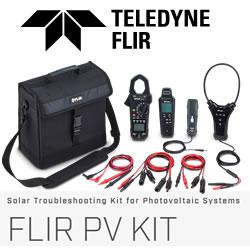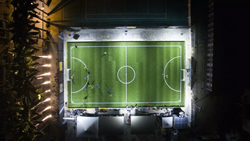Hawaiian Electric, Amber Kinetics Begin Kinetic Energy Storage Demonstration with Elemental Excelerator Support
The five-ton flywheel stores electricity as rotational kinetic energy and is capable of charging and discharging for multiple duty cycles per day with no loss of capacity. The environmentally friendly system is 98 percent steel that can be recycled at the end of its 30-year
A solar-powered soccer pitch in Lagos also uses players' footfall to keep the lights on
Yomi Kazeem for Quartz: Africa is already waking up to the possibilities that renewable energy provides, the African Union has pledged a $20 billion investment over the next decade. In East Africa, pay-as-you-go solar energy services arealready proving a mainstream success. In West Africa, things are still at an early experimental stage. One such experiment is a solar-powered football pitch which also uses kinetic energy generated by footballers playing.
Located at a teacher’s college in Lagos, Nigeria’s commercial center, the innovative soccer pitch was launched last year in a three-way collaboration between energy giant Shell; music star Akon, who has been championing solar energy on the continent; and Pavegen, a UK-based start-up which has a target of providing low-cost renewable energy solutions to Africa’s electricity problems.
Perhaps the most interesting technological feature of the solar-powered pitch—only the second ever launched across the world (the first was launched in Brazil in 2014)—is that it combines both kinetic and solar energy to produce electricity. Cont'd...
Chakratec secures series B round from Chinese ZZRunner
Joins current investors Capital Nature and Israel G-Tek in fueling the Energy Storage revolution with the first non-chemical kinetic battery
Records 1 to 3 of 3
Featured Product

FLIR PV KIT - Solar Troubleshooting Kit for Photovoltaic Systems
FLIR PV kits are designed to assess the performance, safety, and efficiency of residential, commercial, and industrial solar panels and photovoltaic systems. PV kits from FLIR help you diagnose faults and potential failures and ensure optimal energy production, system longevity, and compliance with industry standards. With a PV kit from FLIR, you'll be perfectly equipped for any solar installation or repair.


